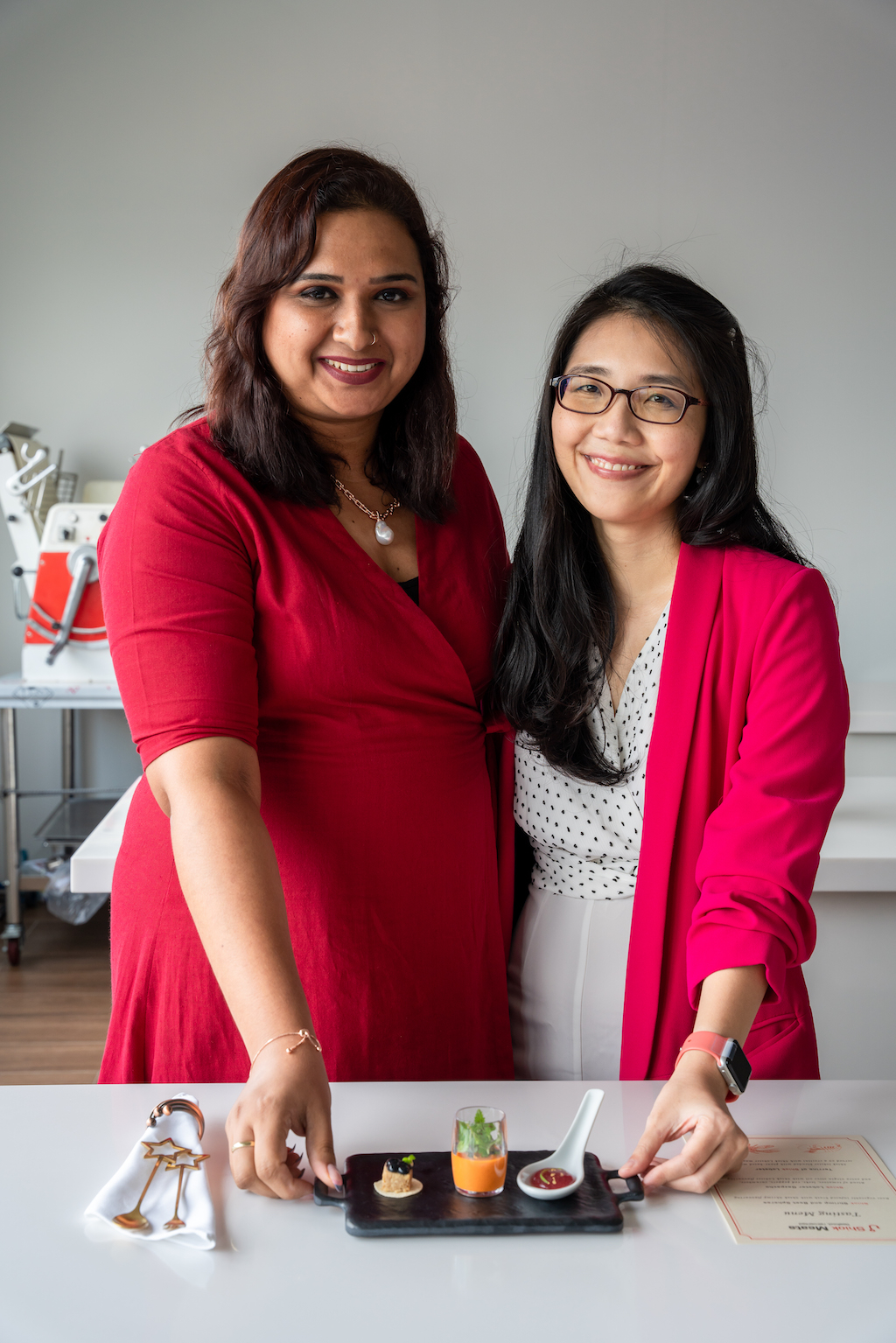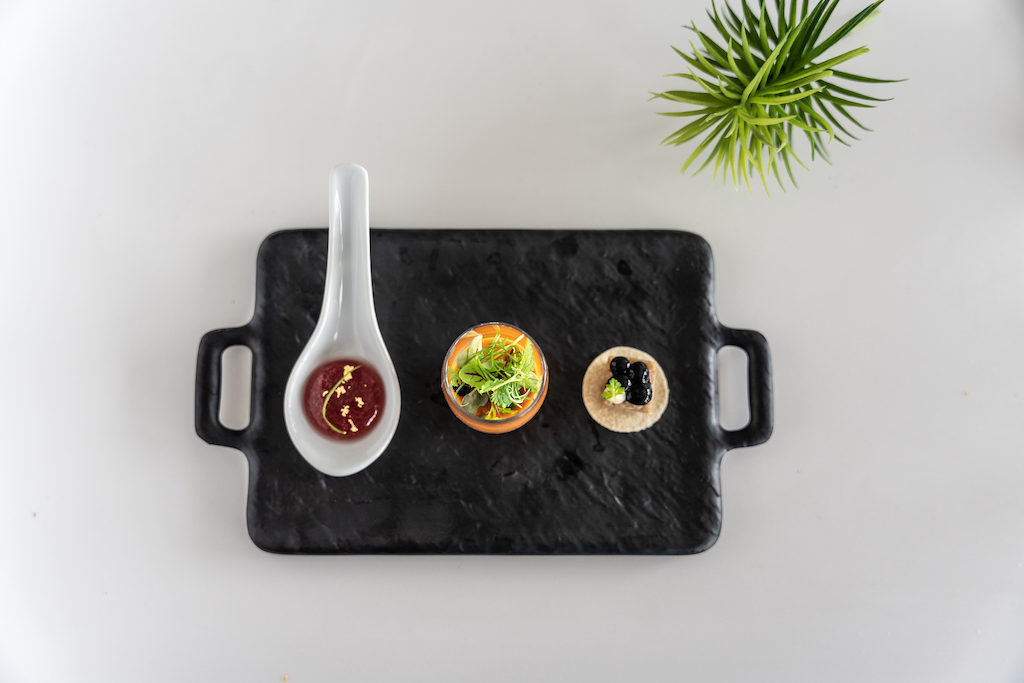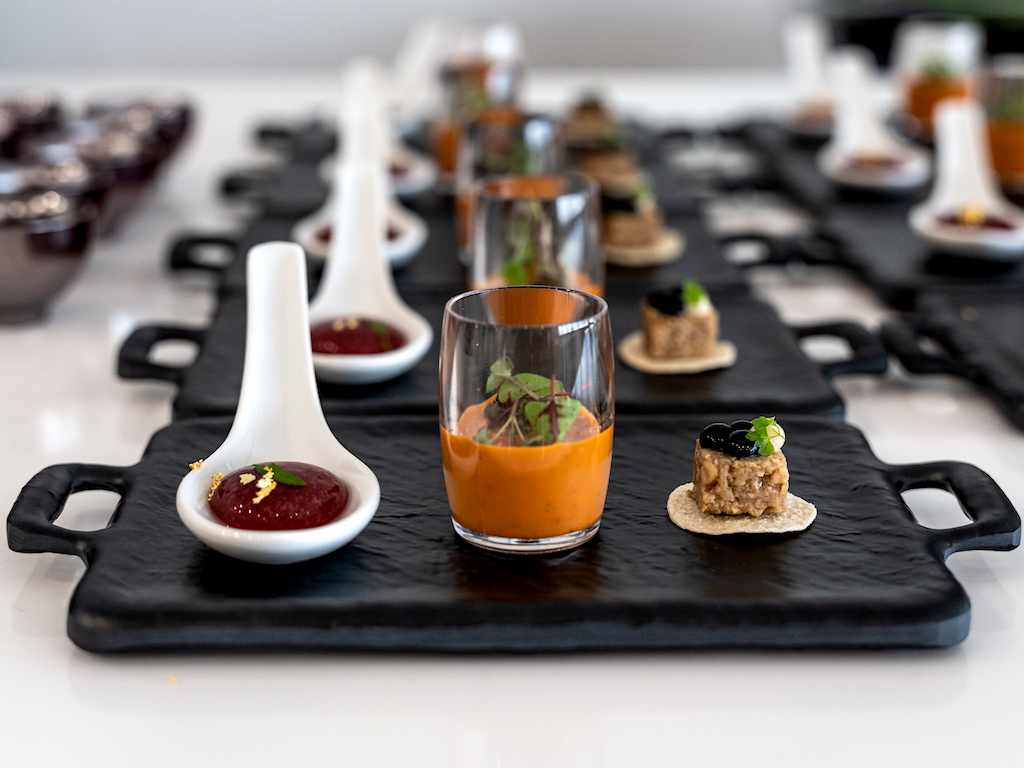4 Mins Read
Shiok Meats has just unveiled the world’s first cell-based lobster meat. In an exclusive tasting event, the Singapore cultivated seafood food tech showcased its newly developed crustacean-free product in a range of dishes alongside their cell-based shrimp, marking yet another milestone towards the company’s ambitions to commercialise its cultured crustaceans by 2022.
Singapore-based cultivated seafood maker Shiok Meats has just announced that it has held a private tasting event to showcase their brand new cell-based lobster meat, making the company the first in the world to do so. The event was held at food incubator Innovate360, where Chef José Luis Del Amo of TheTasteLab served lobster tomato, leek, red pepper and cucumber gazpacho and lobster terrine made with Shiok’s newly-developed cell-based lobster meat, served on a crostini slathered in mayonnaise.
Special guests, investors and restaurateurs at the tasting were also treated to a spherified dish featuring cell-based shrimp created using molecular gastronomy techniques, marking the second time Shiok Meats’ shrimp has appeared on dining plates after first appearing in a siu mai dumpling prototype in 2019.
Among the distinguished guests attending the event included SaladStop! co-founder and president Adrien Desbaillets, Bernice Tay of Enterprise Singapore, and assistant director of the Singapore Food Agency Xuan Feng. Co-head of impact investment at Silverstrand Capital Patti Chu, Signum Capital partner John Ng were also first to taste the new product alongside other collaborators and the Shiok Meats team members.
“The taste is wonderful – to really get a sense of umami flavours that can be developed from this sort of technology, and by blending it with different bases, it really fascinating,” said Desbaillets. “It’s a great journey that Shiok Meats has been on for the past two years, and exciting to see it all come together.”

Our mission is to develop cell-based crustacean meats that are contributing towards a cleaner and healthier seafood industry and solving for the inefficiencies around global protein production. We are working very hard on making sure that our products are delicious, healthy and affordable in the long run.
Dr. Sandhya Sriram & Dr. Ka Yi Ling, Co-Founders, Shiok Meats
Commenting on the milestone, Shiok Meats co-founders Dr. Sandhya Sriram and Dr. Ka Yi Ling said: “We are ecstatic that we were able to showcase the first ever cell-based lobster meat that we produced in our facility.”
“Our mission is to develop cell-based crustacean meats that are contributing towards a cleaner and healthier seafood industry and solving for the inefficiencies around global protein production. We are working very hard on making sure that our products are delicious, healthy and affordable in the long run.”
While the company plans to take its cultivated Shiok Shrimp to market by 2022 – potentially becoming the first cell-based food tech to bring much-needed disruption US$50 billion global shrimp market at a time when food safety concerns are riding high amidst the coronavirus pandemic and threats of aquaculture diseases like Div1 – Shiok Meats has also set its sights on tackling the problematic lobster market.
Lobsters, mostly produced in the U.S., Canada and Australia, are in high-demand especially in Asian markets like Hong Kong and mainland China, and sustainable solutions to meet increasing consumption rates will be necessary to alleviate the industry’s environmental toll. Despite beef and lamb remaining the most carbon-hefty meats, wild lobster catches require fossil fuel-powered vessels that burn an estimated 10,000 litres of dirty fuel per catch.

The taste is wonderful – to really get a sense of umami flavours that can be developed from this sort of technology, and by blending it with different bases, it really fascinating.
Adrien Desbaillets, President & Co-founder, SaladStop!
Almost all commercial seafood fishing operations also use methods such as trawling and longlines, which are at some point discarded in the sea, making up almost 50% of the ocean plastic waste, not to mention harming non-targeted species in bycatch, including dolphins, sea turtles and sharks.
Most scientific estimates say that marine populations are depleting so quickly we could be seeing most species consumed by humans going extinct by 2048, with some recent predictions suggesting that the timeline could be pushed forward due to a spike in consumers choosing seafood as their choice of protein over red meats.
Shiok Meats says that it stands out from other cultivated protein startups as its proprietary patent-pending technology enables the isolation of stem cells from crustaceans for growth in nutrient-rich conditions. Within four to six weeks, the company is able to produce a 100% animal-free and slaughter-free cell-based seafood product that is identical to its conventional counterpart with only a fraction of the environmental footprint.
Its latest development of cell-based lobster meat comes just over a month after it announced an impressive US$12.6 million Series A funding round following its US$3 million bridge funding round secured earlier in June this year. The funds will go towards the construction of its first commercial pilot facility, putting the company on track to win the race in building the world’s fully-functional commercial plant dedicated to cell-based crustacean production.
All images courtesy of Shiok Meats.




